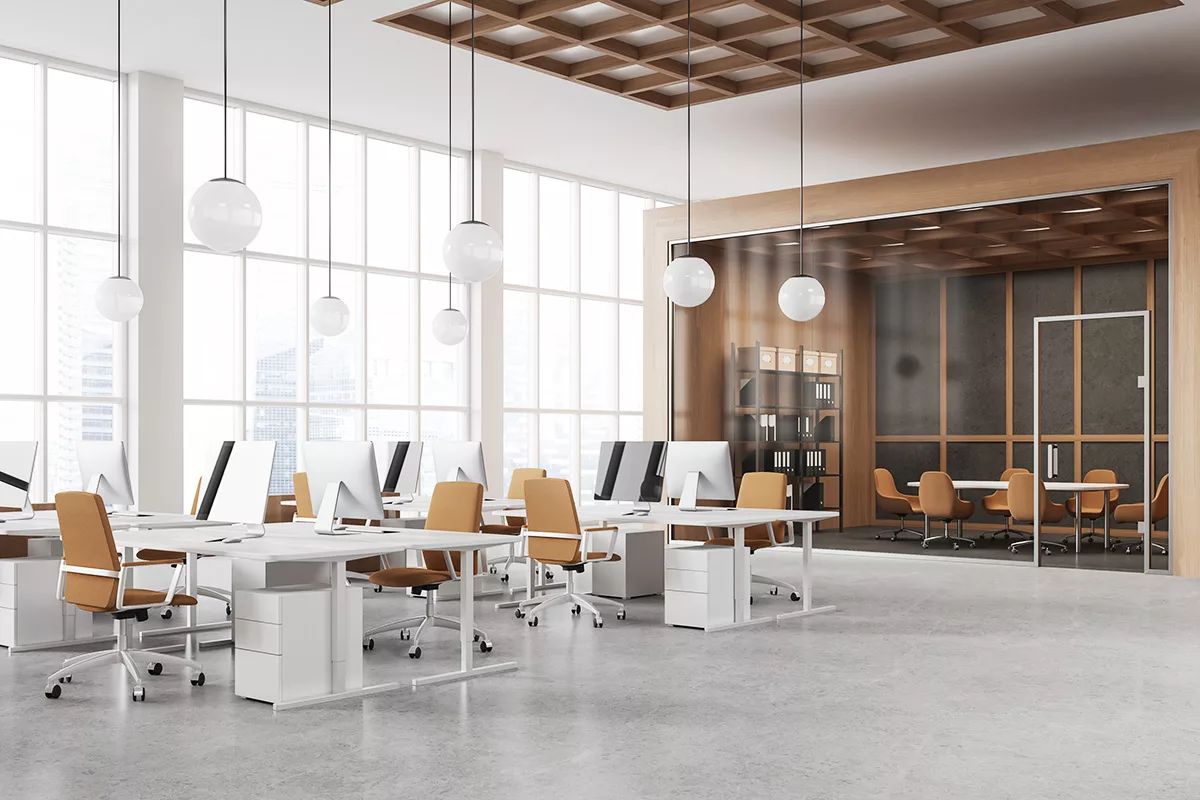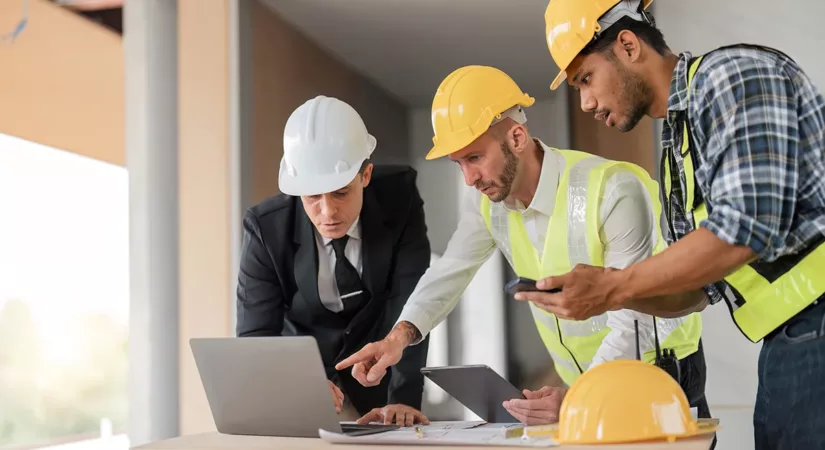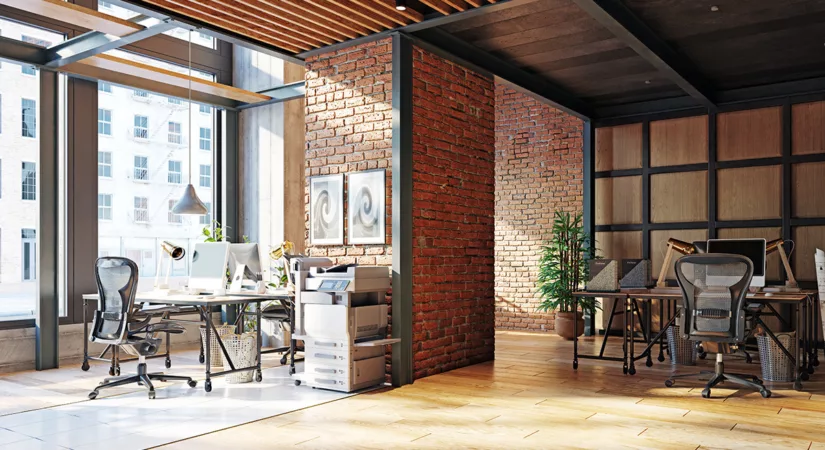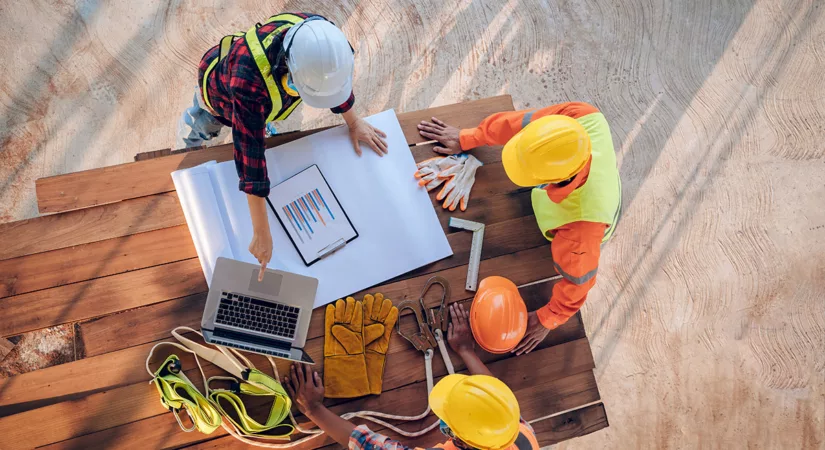6 of the Best Flooring Materials for Commercial Construction Projects
In the realm of commercial construction, choosing the right flooring is a pivotal decision that can directly impact the functionality, aesthetics, and longevity of a space. However, with so many options available, selecting the right option can be both exciting and daunting. In this guide, we explore the best commercial flooring options, highlighting their features and benefits to inspire your next commercial construction project.
1. Carpet Tile
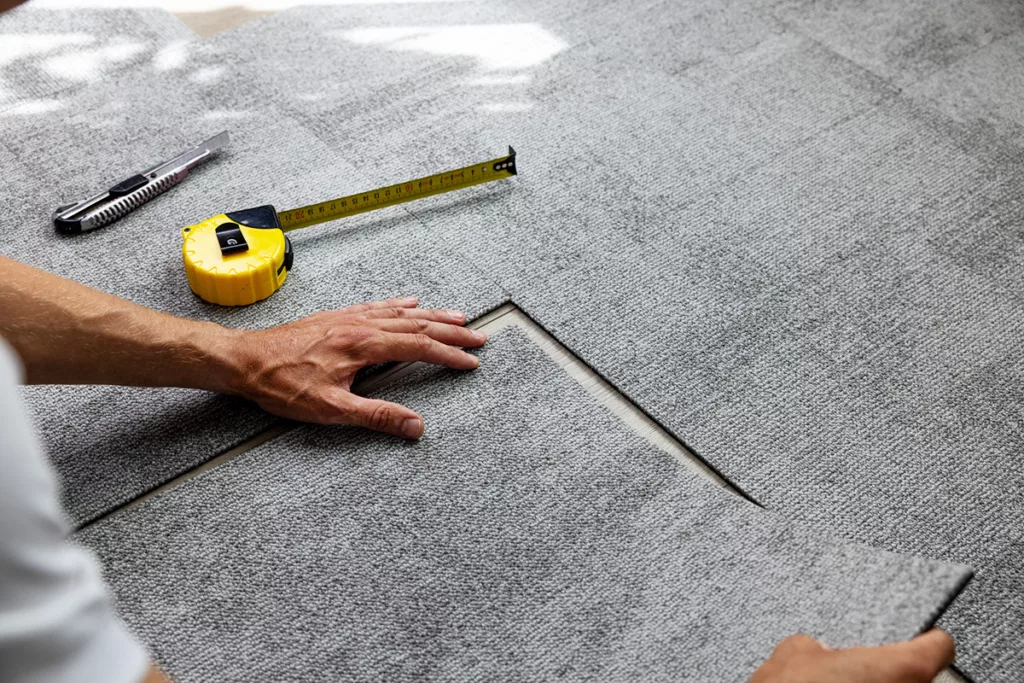
If you’re looking for a modular and versatile commercial flooring option, carpet tile is a great choice. Carpet tiles offer significant advantages in commercial settings, such as easier maintenance, functionality, and comfort. Instead of using one continuous roll of wall-to-wall carpet, carpet tile is composed of individual squares that are installed one by one.
Carpet tiles provide comfort underfoot and can help absorb sound, making them suitable for offices, conference rooms, and other areas where noise reduction is desired. Another benefit of carpet tile is replaceability. If a section of the carpet gets damaged or stained, only the affected tiles need to be replaced, which makes maintenance and repairs both simple and cost-effective.
This flooring material is also great for withstanding wear and tear, making it ideal for commercial settings where there is a constant flow of people, such as office spaces, retail stores, and hotels. It also comes in a wide range of colors, patterns, and textures, which means you can tailor it to align with your company’s branding or desired aesthetic.
2. Luxury Vinyl Tile (LVT)
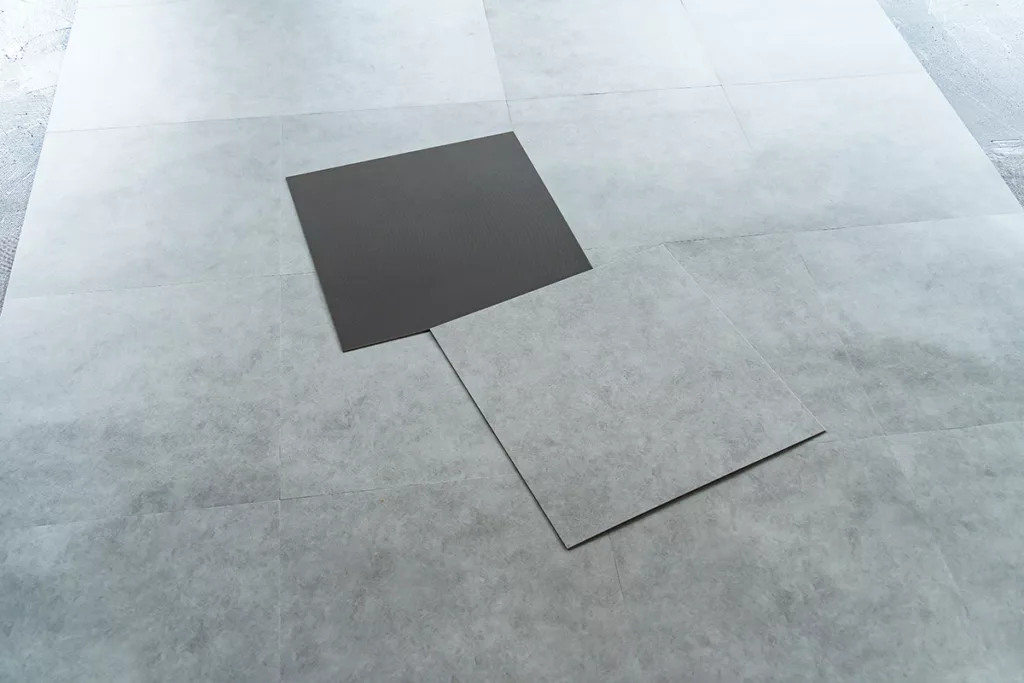
Luxury Vinyl Tile (LVT) is a versatile and cost-effective flooring option for commercial construction projects, offering a combination of durability, aesthetic appeal, and low maintenance requirements. LVT flooring is extremely resistant to scratches and stains, making it an ideal choice for businesses with lots of foot traffic, such as offices, medical facilities, schools, and more. It’s also weatherproof and water resistant, which means it’s long-lasting and easy to maintain.
In terms of design, LVT is extremely versatile and even comes in patterns that resemble hardwood flooring or stone. This option is also very affordable, making it a cost-effective solution that can help maximize the return on investment (ROI) of your commercial construction project.
3. Polished Concrete Flooring
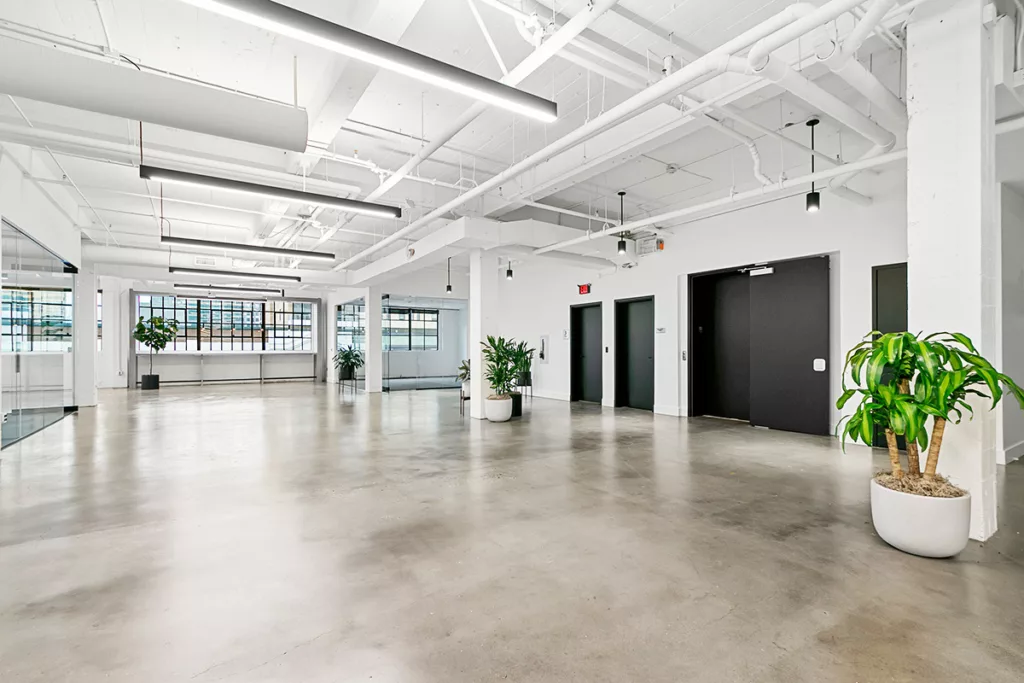
Polished concrete is a versatile and practical flooring solution for commercial construction projects. Its combination of durability, aesthetic appeal, low maintenance, and sustainability makes it a preferred choice for various applications, including retail stores, restaurants, offices, warehouses, and more.
Concrete is inherently strong and durable, capable of withstanding heavy foot traffic, machinery, and wear and tear common in commercial environments. When properly polished, the surface becomes even more resilient, reducing the need for frequent repairs or replacements.
Polished concrete offers a sleek and modern look that can enhance the overall aesthetic of a space. Dyes or stains can be applied to achieve custom colors and designs to complement the space’s interior design. Another advantage of concrete flooring is its resistance to moisture and chemicals, making it an ideal choice for restaurants, laboratories, or healthcare facilities. Its sealed surface prevents liquids from penetrating the concrete, making it easier to clean. It also prevents the growth of mold or bacteria.
4. Rubber Flooring
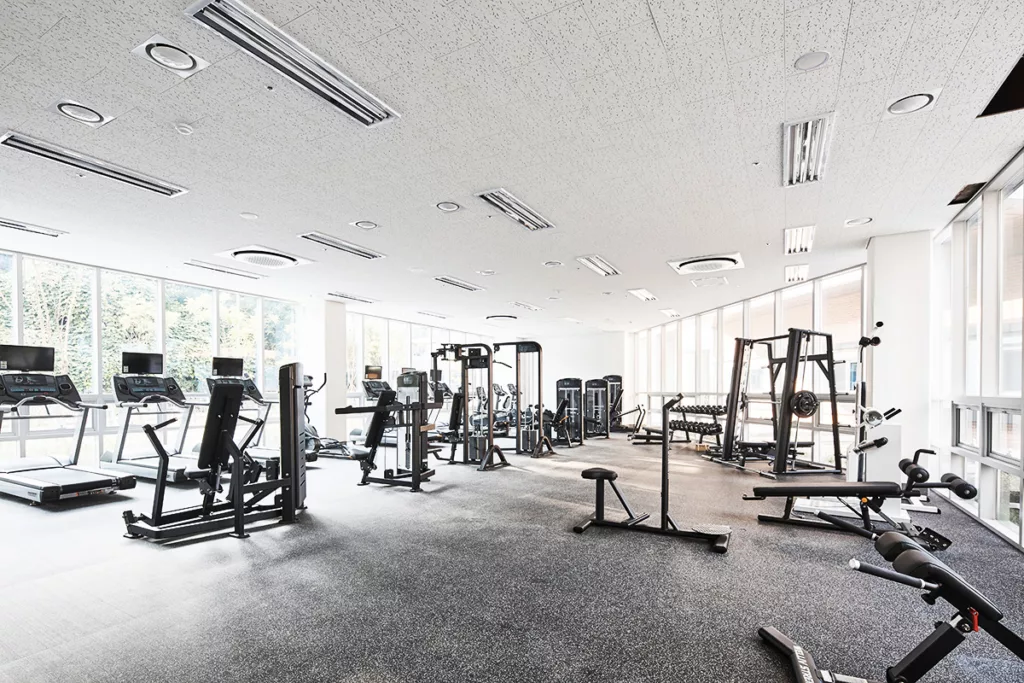
Rubber flooring is a versatile and practical choice for commercial construction projects. It offers durability, safety, and comfort benefits that make it well-suited for a wide range of applications. Its resistance to wear, scratches, and indentation, ensuring long-term performance even in high-traffic areas. As a result, it’s an ideal choice for commercial buildings like schools, hospitals, gyms, and retail stores.
Rubber flooring is also slip-resistant, and typically has a patterned or textured surface to provide traction. Additionally, its elasticity provides a cushioning effect that helps absorb impact. This is why it’s commonly preferred by gyms and other types of buildings where comfort and risk mitigation are important.
5. Linoleum Flooring
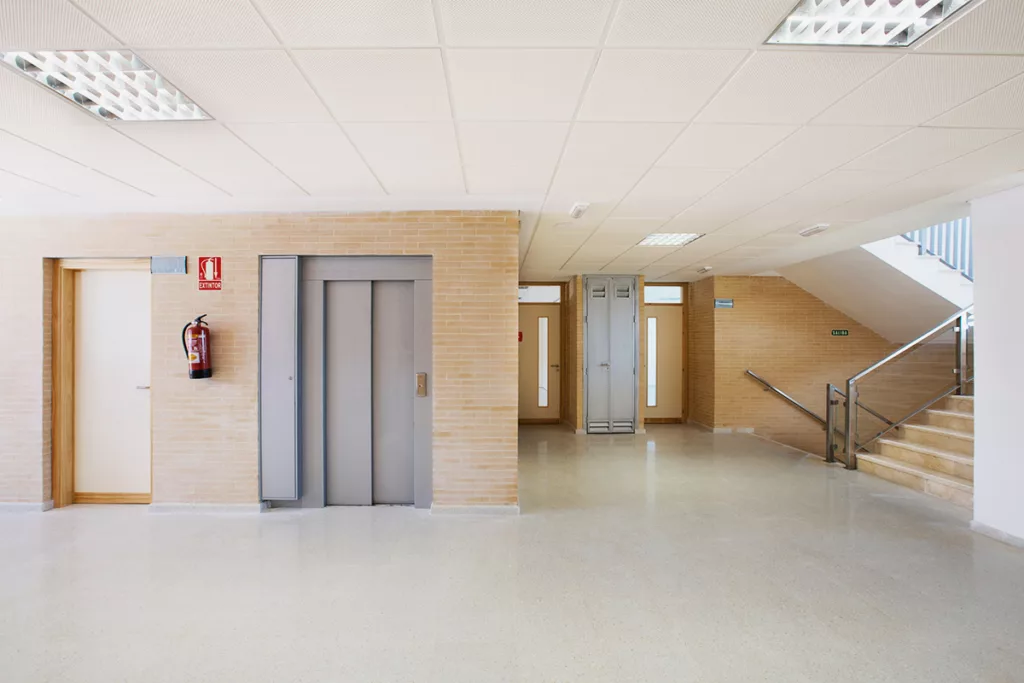
Linoleum is an incredibly durable and environmentally friendly flooring often made from linseed oil, cork, and other renewable materials. It’s commonly used in a variety of commercial construction projects including retail spaces, multipurpose facilities, office buildings, and more. Although it’s often confused with vinyl, the key difference is that it’s manufactured with organic materials as opposed to synthetic ones like PVC.
In addition to its resilience, linoleum is known for its longevity since it’s resistant to scratches, stains, and fading. This means it can retain its original appearance even after years of use. It’s a cost-effective choice for commercial construction that reduces the need for frequent replacement or repairs.
Linoleum is also an antimicrobial surface, which means it inhibits the growth of bacteria and makes it a hygienic choice for restaurants, medical facilities, or schools.
6. Quartz Flooring
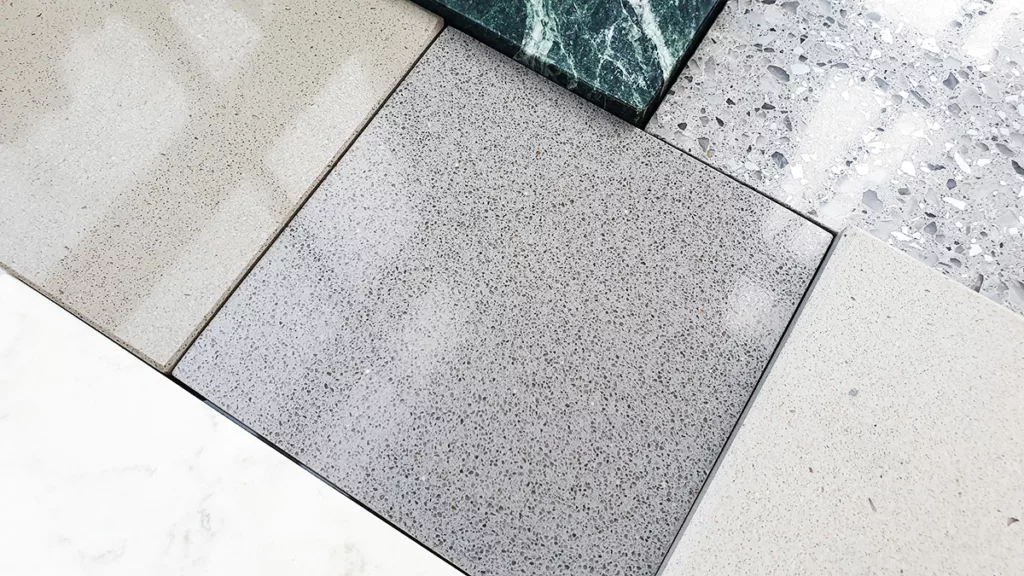
Quartz is one of the most resilient natural materials available. It’s no surprise that quartz flooring is a great option for commercial spaces where longevity is the top priority. Its durability and elegant appearance make quarts a common flooring option in commercial construction projects like high-end retail, hospitality, and corporate environments.
Quartz flooring is highly resistant to stains and spills. Its non-porous surface prevents liquids from seeping into the material, making it easy to clean and maintain. This is especially important in settings like restaurants or cafeterias where spills are common.
Quartz flooring can also withstand the movement of heavy machinery, carts, and other equipment without leaving visible marks on the surface. This ensures that the flooring will maintain its appearance for a long time, without regular polishing or waxing. Quartz is also inherently slip-resistant, providing a safe and stable surface for employees, customers, and visitors in commercial spaces.
Find the Best General Contractor for Your Commercial Construction Needs
Selecting the right flooring material during a commercial construction project is crucial. It directly impacts the aesthetics, durability, safety, maintenance requirements, and overall functionality of the space. Hiring an experienced general contractor who specializes in commercial construction is also just as vital to the success of your project. At DRF, we have decades of experience in commercial renovations and remodels, tenant improvements, and more.
Contact us online to learn more about any of our commercial construction services or give us a call at (707)-888-0713 to speak with a member of our team today.

